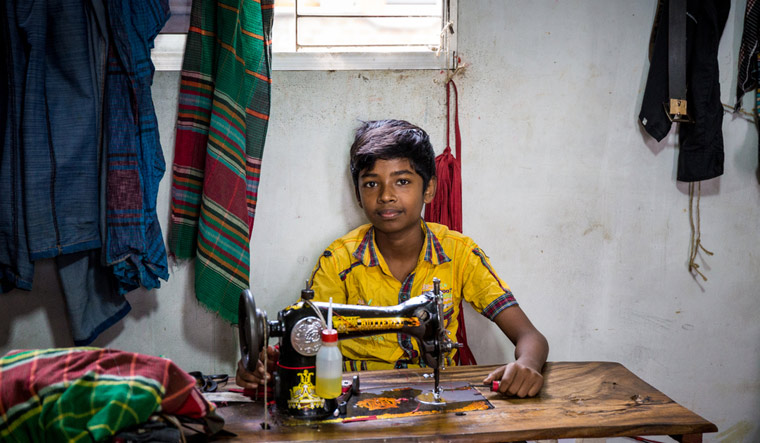Has it ever occurred to you that the shirt you wear could have been made by child labourers or that tea leaves you use could have been plucked by women who were forced into the workforce?
A panel discussion on reporting fairly and sensitively on human trafficking in India, organised by Thomson Reuters Foundation, at Salt Lake in Kolkata turned out to be an eye opener for many. ''Even some of the legitimate supply chains like coal mines, mica making and government manufacturing units have victims of forced child labour and human trafficking working in them,” said Anindit Chowdhury, global programme manager, gender justice and human rights, C& A Foundation who was part of the panel.
Moderated by Kieran Guilbert, slavery and trafficking editor at the Thomson Reuters Foundation, the panel comprised of five eminent speakers including Hasina Kharbhih, founder, Impulse NGO Network, Mathew Joji, director of advocacy, Partnership Development and Communications, International Justice Mission and Chandreyee Ghose Dutta, journalist at The Telegraph, Kolkata.
There seems to be gender discrimination in news, too. Trafficking is typically considered a women's news and hence it hardly makes it to page 1, said Chowdhury. “However, media coverage of trafficking has improved a lot over the years. The language has become a lot more positive in that it goes beyond incident-based reporting and allows people to relate to the issue as a whole,” he said.
Trafficking stories do generate reader interest now, said Dutta. “Initially trafficking stories would be perceived as just another incident. It would be covered only when there were some arrests or incidents that had happened. It was covered by crime reporters,” she said. “While working on a story on adoption, I came across shelter homes that were offering babies for 10 lakhs or even less. Some of those children were trafficked,” she recalled.
“Illegal sale of trafficked babies still occur in the country,'' said Dutta adding that there are many layers to human trafficking.



